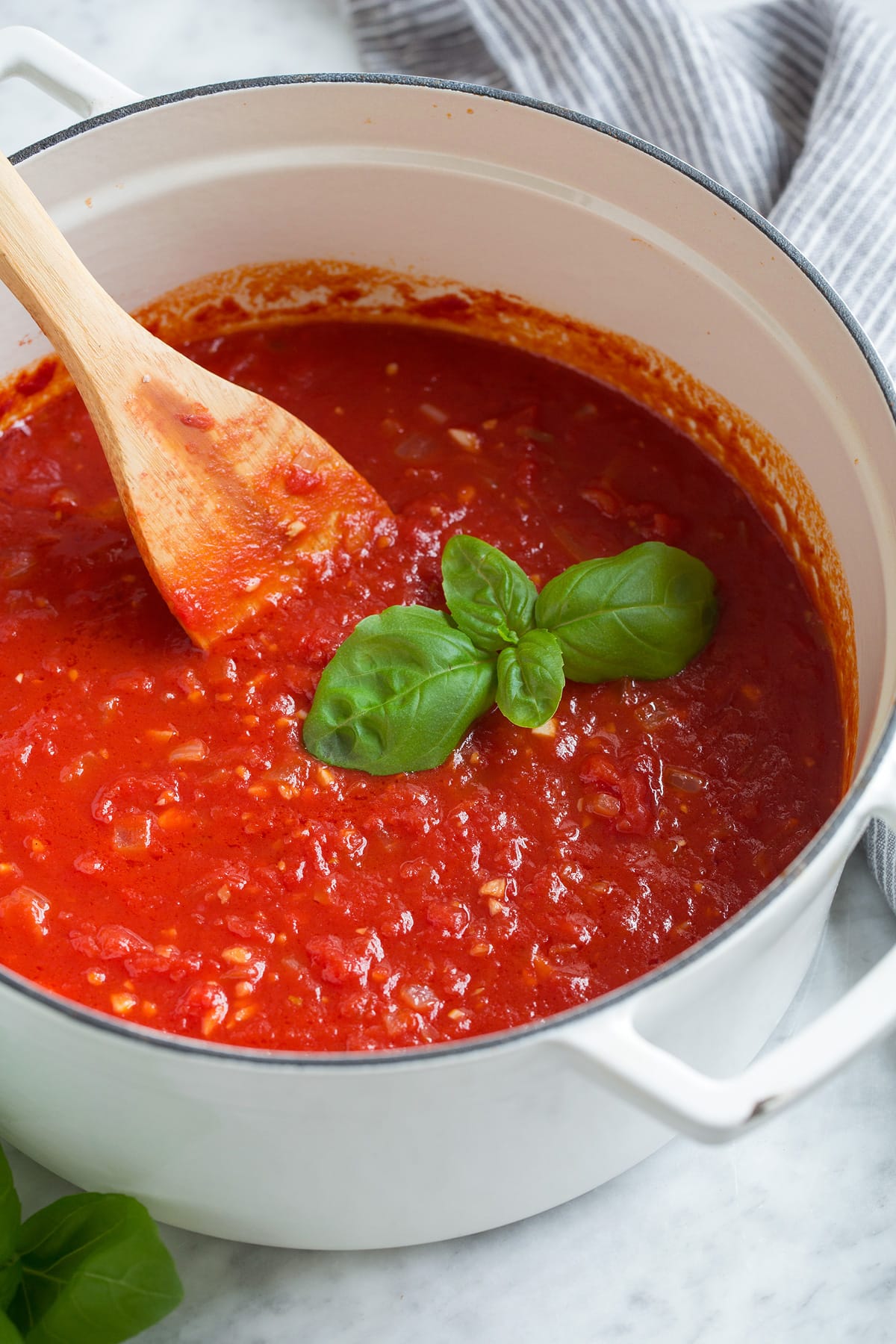Marinara Sauce: A Culinary Odyssey through Science, Philosophy, Sociology, and History
Tomato sauce, specifically marinara, holds a distinguished status in global cuisine, particularly Italian. Its versatility spans pasta, pizza, meat, and more. This blog post delves into the origins, components, and merits of marinara sauce, emphasizing the superiority of homemade over store-bought versions.
Understanding Marinara Sauce:
Marinara sauce is a straightforward blend of olive oil, garlic, onion, tomatoes, and herbs. Its name, "marinara," originates from the Italian "marinaro," denoting a maritime or sailor connection. This implies its inception among sailors or fishermen who employed fresh garden produce to enhance their catches.
Historical Roots:
The first documented mention of marinara sauce dates back to the 16th century when tomatoes voyaged from the Americas to Europe. Yet, it wasn't until the 18th century that tomatoes gained widespread usage in Italian cuisine, particularly in the south. Antonio Latini, a Neapolitan chef, penned the earliest marinara recipe in 1692, dubbing it "salsa di pomodoro alla spagnuola" or "tomato sauce in the Spanish style," a nod to Spanish explorers' introduction of tomatoes to Italy.
Nutritional Value:
Lycopene-rich tomatoes combat oxidative stress and inflammation, potentially reducing the risk of cancer, cardiovascular ailments, and age-related macular degeneration.
Olive oil, abundant in monounsaturated fats, improves cholesterol levels and curtails inflammation. It also houses polyphenols with anti-inflammatory and anti-microbial properties.
Garlic and onion, both allium family members, exhibit antibacterial, antiviral, and antifungal properties. Additionally, they boast sulfur compounds promoting immunity and detoxification.
Herbs like basil, oregano, and parsley not only enhance flavor and aroma but also contribute vitamins, minerals, and phytochemicals with antioxidant and anti-inflammatory properties.
Why Choose Homemade Marinara Sauce:
Freshness: Homemade marinara derives its essence from fresh ingredients, ensuring heightened flavor and nutrients compared to canned or processed counterparts. Fresh tomatoes, with lower water content, yield a dense, luscious sauce without prolonged cooking.
Customization: Tailor ingredients and seasonings to your preference, from tomato type and ripeness to garlic, onion, olive oil quality and quantity, and herb selection. Add capers, olives, anchovies, cheese, or chili flakes for complexity and character.
Health Benefits: Homemade marinara sidesteps added sugars, salts, preservatives, and artificial flavors. It brims with antioxidants, vitamins, minerals, and wholesome fats, potentially benefiting blood pressure, cholesterol, inflammation, and disease risk.
In essence, crafting marinara sauce from scratch eclipses store-bought alternatives. Its superior freshness, adaptability, and healthful attributes make it a culinary gem worth savoring. Follow a simple recipe or embark on your culinary exploration. Once you savor fresh marinara, jarred versions will pale in comparison.
Now to the fun part
Marinara Vs. Scientific Theories:
Flavor Formation Chemistry:
Marinara's complex chemistry mirrors scientific principles of chemical reactions. The blend of fresh tomatoes, garlic, onion, and herbs encapsulates the essence of chemical transformations, showcasing the art of culinary alchemy.
Antioxidants and Well-being:
The abundance of lycopene in marinara sauce underscores the scientific understanding of antioxidants. This potent element safeguards against oxidative stress, highlighting the fusion of culinary pleasure and healthful science.
Marinara Vs. Philosophical Theories:
Essence versus Existence:
Marinara embodies the philosophical interplay of essence and existence. Its essence resides in fundamental components, while its existence emerges from its culinary journey, reflecting profound philosophical inquiries into being and becoming.
Utilitarianism and Culinary Bliss:
The joy derived from relishing marinara sauce resonates with utilitarian philosophy. It emphasizes the pursuit of pleasure and the avoidance of pain, underscoring the inherent worth of culinary experiences in human existence.
Marinara Vs. Sociological Theories:
Culinary Legacy and Identity:
Marinara sauce serves as a cultural cornerstone, mirroring the sociological concept of culinary heritage. It encapsulates generations of tradition, illustrating how food intertwines with identity and social unity.
Commensality and Social Cohesion:
The act of partaking in a meal featuring marinara sauce embodies the sociological theory of commensality. It nurtures social bonds, fortifying relationships and fostering a sense of belonging within communities.
Marinara Vs. Historical Events:
Columbian Exchange and Culinary Globalization:
The introduction of tomatoes to Europe through the Columbian Exchange marked a culinary revolution. Marinara sauce stands as a testament to the intercontinental exchange of flavors, forever reshaping global gastronomy.
Endurance and Cultural Shifts:
The enduring popularity of marinara sauce highlights the resilience of culinary traditions. It has withstood centuries of cultural changes, emerging as a timeless culinary emblem that transcends boundaries and epochs.
In the realm of culinary wonders, marinara sauce stands as an emblem of flavor, tradition, and innovation. Beyond its delectable taste, it weaves a tapestry connecting scientific principles, philosophical musings, sociological bonds, and historical shifts. From the chemistry of flavor formation to its philosophical essence, marinara resonates with profound theories that shape our understanding of the world. Its cultural significance and enduring popularity speak volumes about the resilience of culinary traditions in the face of evolving times. As you savor each spoonful of this exquisite sauce, remember that it embodies not only the richness of taste but also the depth of human thought and history. Marinara sauce, in all its glory, is a testament to the enduring power of food in our lives.
Peace Out

Comments
Post a Comment